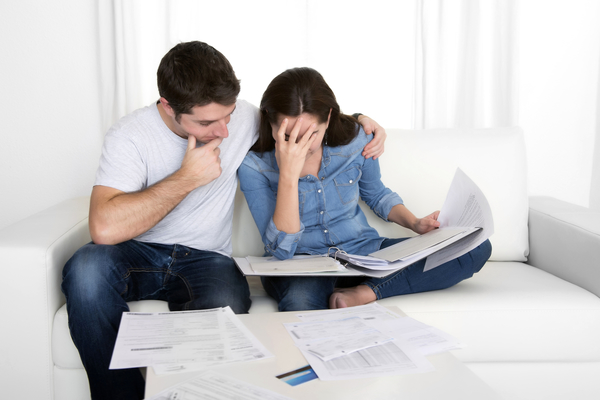5 Debts You Should Always Avoid

Canadians are accumulating record levels of debt and while you may be able to keep up with the monthly payments, not all debts are good. Everyone knows that credit card debt, payday loans, and other high interest debt are bad credit choices. However, I meet with people everyday who have accumulated so much of this debt that they can’t pay it back.
Investing in a home and taking on a reasonable mortgage can be a great way to build equity and can even be a means of forced savings. However, there are actions that we sometimes take that lead to poor debt choices.
Here are 5 of the most common actions that lead to taking on debt that you should never carry:
1. Spending More Than you Earn
We live in a consumer culture—items we want become needs in an attempt to keep up with the perceived lifestyle we think we should be living. We feel we’ve earned that vacation and fool ourselves into believing that we will catch up with unpaid bills over the next year. Problem is, once you begin the slippery slope of using credit cards to fund a lifestyle, this usually leads to building up a credit card balance that you can’t pay off.
2. Low Interest Rates Give Us the Perception that Revolving Credit
While lines of credit are not necessarily bad debt, they can lead us to financial issues depending on what you use the money for and whether or not you’ve created a plan to pay off that debt. The very nature of the debt, the fact that it is revolving, creates too big of a temptation. If all you have to pay is the interest, and that payment is really low today, that’s all you’ll want to pay. The problem is that the balance doesn’t go away. If you don’t build any assets or savings in the meantime, sooner or later that debt is going to cause trouble.
The very nature of the debt, the fact that it is revolving, creates too big of a temptation.
3. Having a “Need It Now” Mentality
You’ve just bought a new house and now you want to spend some money on furnishings. Financing companies are happy to oblige with a buy now, pay later option. Again, this form of debt can quickly turn into a problem if you don’t plan ahead for repayment. The same can happen with a car loan. You might be better off buying a cheaper car, keeping your debt levels low, and putting the difference into an emergency fund.
4. Relying on Short Term, Quick Cash Options
You might know that an expensive payday loan is a bad debt choice, but the industry is getting more complicated. Subprime lenders are now offering quick access to short term (up to three year) installment loans of up to $15,000 even for those with poor credit. These lenders say they are providing a service that big banks won’t provide. The problem is that these are very expensive loans and the costs are often hidden. Fees and rollover charges can result in loans with an annual interest rate close to 60%. Lenders also sometimes pressure, or trick consumers into signing up for very costly loan insurance options.
Fees and rollover charges can result in loans with an annual interest rate close to 60%. Lenders also sometimes pressure, or trick consumers into signing up for very costly loan insurance options.
5. Irregular Income Streams Can Lead to Unmanageable Tax Debts.
If you have a regular job, your employer deducts withholding taxes from your pay to cover your income tax every year. For most people this works well, many even get a small refund when they file their tax returns. However, if your income fluctuates, you could find yourself with an unexpected tax liability. Small business owners facing a cash crunch are often tempted to stop making withholding payments, either for employee withholdings, HST or their own instalment payments, as a way to get by hoping things will get better. The problem with this approach is that Canada Revenue Agency doesn’t go away. If you build up a significant tax liability you cannot repay, you may end up having to file bankruptcy or a consumer proposal in order to stop the CRA from taking a lien on your home.
So in order to be sure you don’t end up with unpayable credit card debt, lines of credit, installment loans, payday loans or tax debts, take a good look at your budget, plan ahead and make sure none of these forms of credit become your go-to source for cash.
OWN. GROW. PROTECT. First Foundation is the one-stop-shop for financially responsible Canadians looking to get great advice and save money. Whether arranging financing for a property you OWN, or looking…
